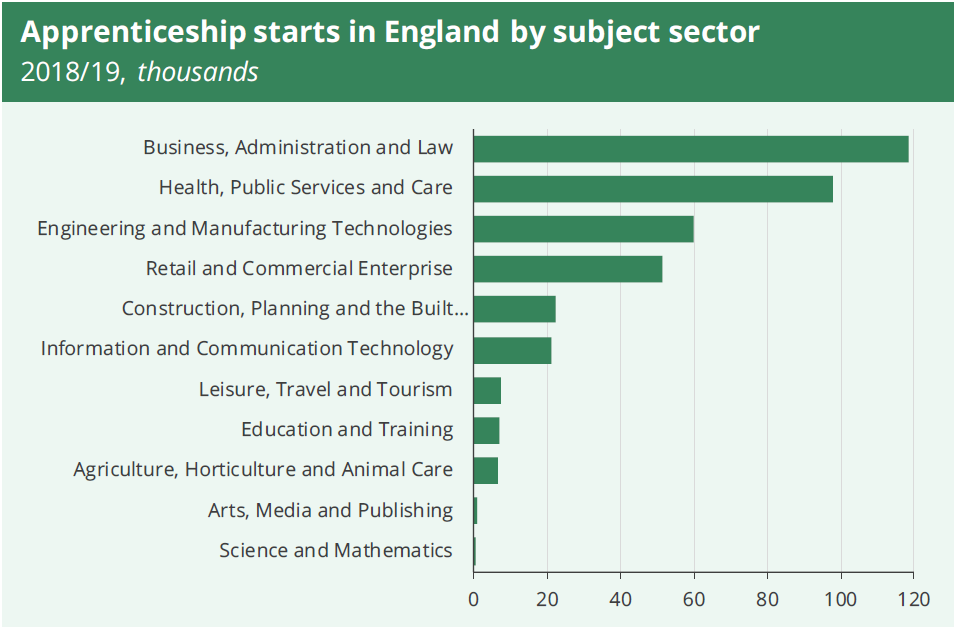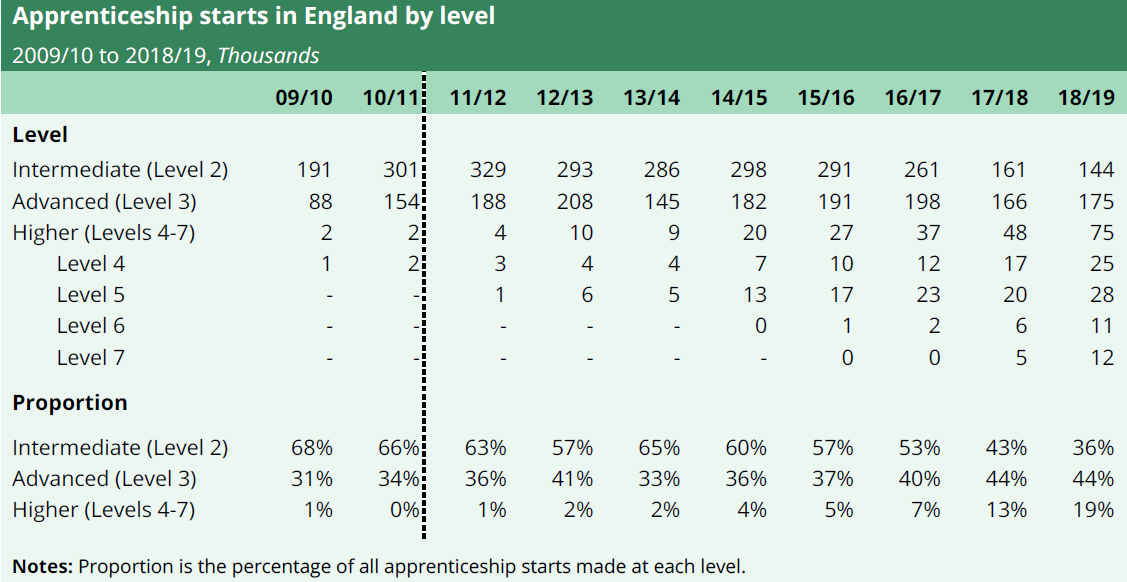



The government released a document on the 27th August 2020 with an overview of apprenticeship statistics, the first report since frameworks were officially dissolved on the 1st August 2020. Here is an overview of some key points that stood out.
The age profile of people starting apprenticeships changed between 2017/18 and 2018/19, with a higher proportion of starts from apprentices over the age of 24. 46% of the apprenticeships started in 2018/19 were by people aged 25. The age group with the largest increase was by those aged between 35 and 44, with 21% more starts than in 2017/18 (p.3).
Apprenticeships used to be exclusively for young people. These statistics certainly show this is no longer the case. With new, higher levels being introduced, people are now able to access professional development training at later stages of their career. It has opened up a range of exciting training opportunities beyond just school leavers and those in junior positions.
83% of all starts were in four subject areas: Business, Administration and Law; Health, Public Services and Care; Engineering and Manufacturing Technologies and Retail & Commercial Enterprise (p.3)

Any business can take advantage of an apprenticeship levy pot, regardless of industry sector. These statistics show that many businesses are missing out on valuable opportunities to train new or existing staff members.
The document also showed a sharp decrease in people signing onto apprenticeships after COVID-19 (p.6). This is to be expected as many have been dealing with disruptive changes to their everyday lives.
However, the government has issued extra support to encourage apprenticeship training despite the pandemic. This includes incentive payments for hiring a new apprentice of up to £3,000 between 1st August 2020 and 31st January 2021.
Hopefully following this incentive there will be an increase to follow into 2021.
There were large increases in the number of Intermediate and Advanced Level apprenticeship starts between 2009/10 and 2011/12. Since 2011/12 the proportion of starts that are advanced level or higher has steadily been increasing, from 37% in 2011/12 to 63% in 2018/19 (p.16).

As well as a pattern emerging with higher age ranges accessing apprenticeship training, we’ve seen an increase in higher level training. Apprenticeships are offered at three levels: intermediate, advanced, and higher. Higher levels are those with degrees and above – and this level and Intermediate (those with A Levels) has seen significant increases since 2010.
This shows that apprenticeships are becoming more attractive and accessible for further professional development as well as continuing to be a valuable steppingstone for junior individuals.
All in all, the report shows a mixed bag of news for apprenticeships. We are seeing positives in terms of a change in attitude on who apprenticeships are for, and what levels are available, but the levy fund is still being massively under-used, especially as the pot is now open to non-levy paying businesses.
This means the key take away is simple. If you have training needs but are under tougher financial pressures, it is 100% worth investigating apprenticeship programmes, whether those are in Sales, Marketing, and Management or Engineering, Data Science, or Accounting.
Check out the full document to learn more about apprenticeship statistics. If you would like to find out about the levy and how apprenticeships could help develop your new or existing staff, please get in touch with our apprenticeship adviser, Wendy Spaxman, who will be happy to help! Contact the team via email on apprenticeships@professionalacademy.com, call Wendy directly on 01223 783 865, or the office on 01223 365 505 for more information.